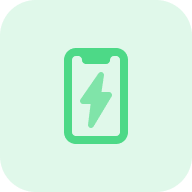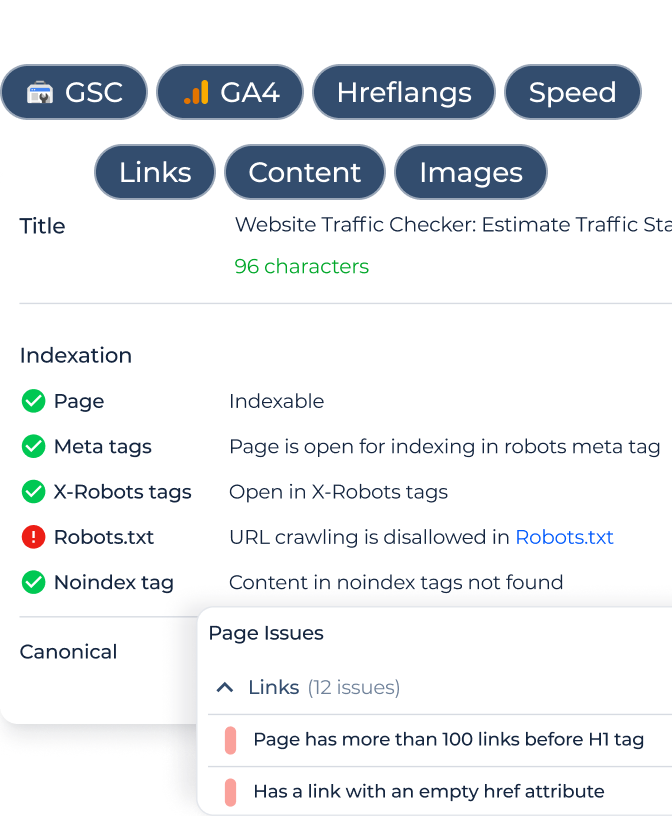What is the Page Size Checker?
The Page Size Checker by Sitechecker is a tool that analyzes the size of web pages in megabytes to help optimize performance. It offers two audit options: a quick check for a single page’s size and a comprehensive analysis of all website URLs, identifying oversized ones, size-related issues, and continuous monitoring.
How the tool can assist you
Identifies oversized content: analyzes page sizes and highlights large files that slow down loading times.
Optimizes content dimensions: ensure URLs stay within ideal size limits for better search engine indexing and ranking.
Monitors page sizes: track variations over time, helping detect and manage growing sizes before they impact performance.
Key features of the tool
Unified Dashboard: provides a centralized hub for tracking website performance, and SEO issues in one place.
User-friendly Interface: designed for easy use with intuitive navigation, making website analysis accessible for all users.
Complete SEO Toolset: offers a comprehensive range of tools for SEO analysis, site audits, rankings tracking, and continuous optimization.
How to Use the Tool
To use the Page Weight Checker, simply choose an audit option based on your needs. Select “Test page size of the page” for an instant check of a single page’s size, or “Test page sizes of all pages” for a full website analysis. After selecting your preferred option, click “Start audit” to generate the report and identify any size-related issues.
Page Size Checker of All Website URLs
Step 1: Insert your domain URL address, and choose the all pages option
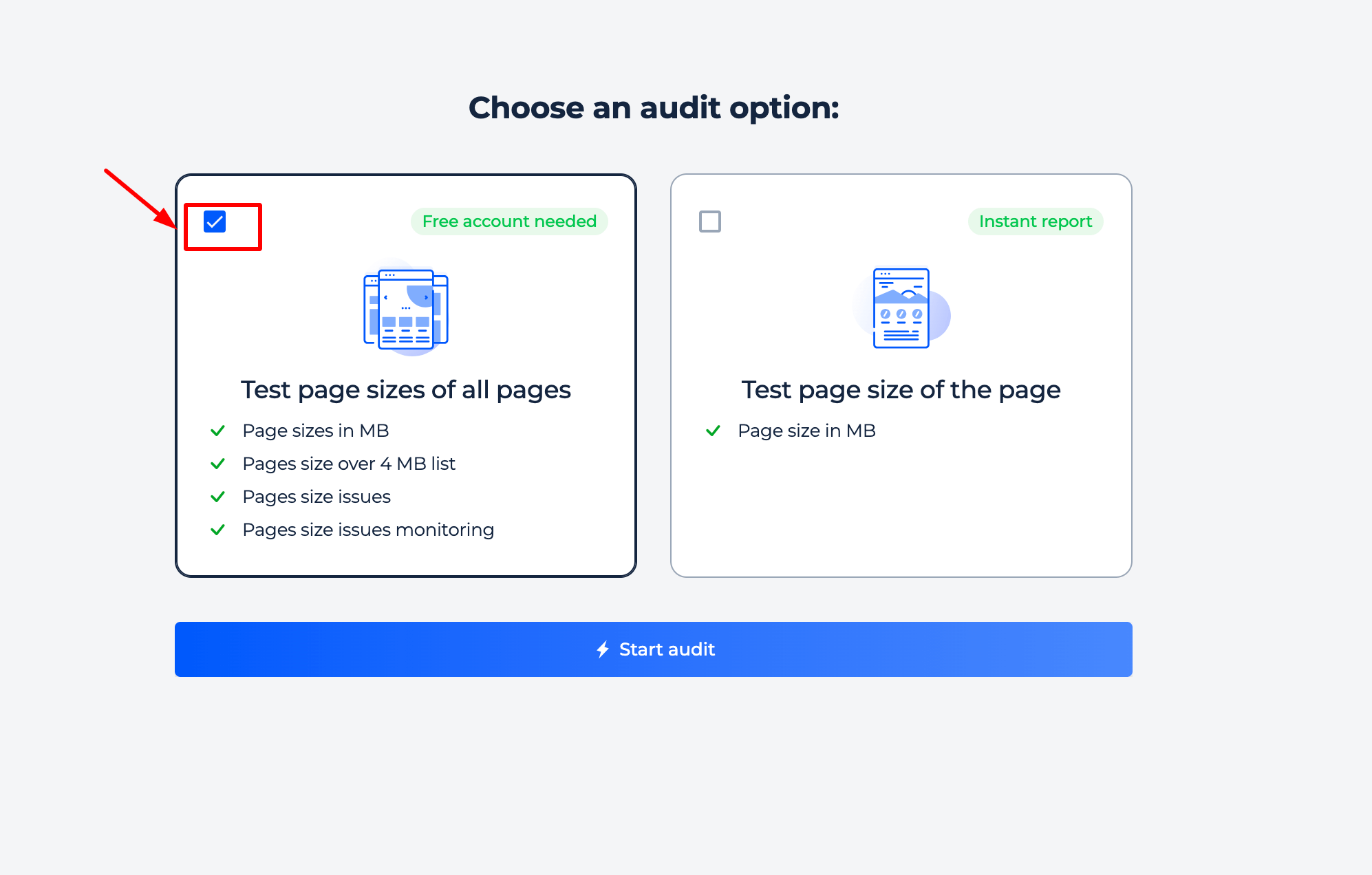
Step 2: Get the results
Identify oversized URLs that may slow down your website, impact SEO rankings, and reduce conversions. Get a detailed analysis of weights, affected pages, and optimization recommendations to enhance performance.
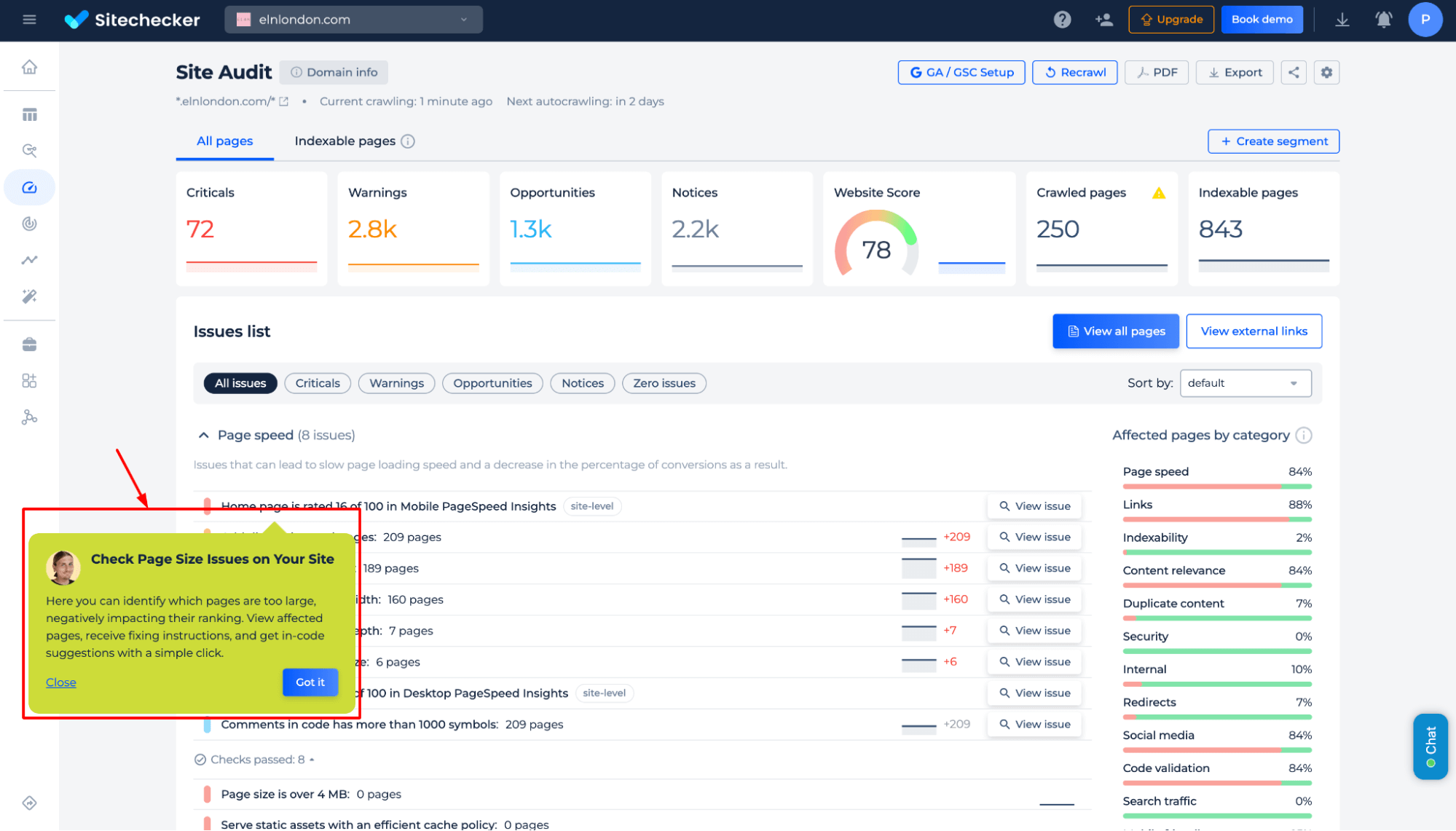
Additional features
Gain deeper insights beyond page size, including critical SEO issues, speed performance, indexing status, and link health. Identify affected URLs, categorize problems, and access detailed reports with optimization recommendations to enhance website efficiency.
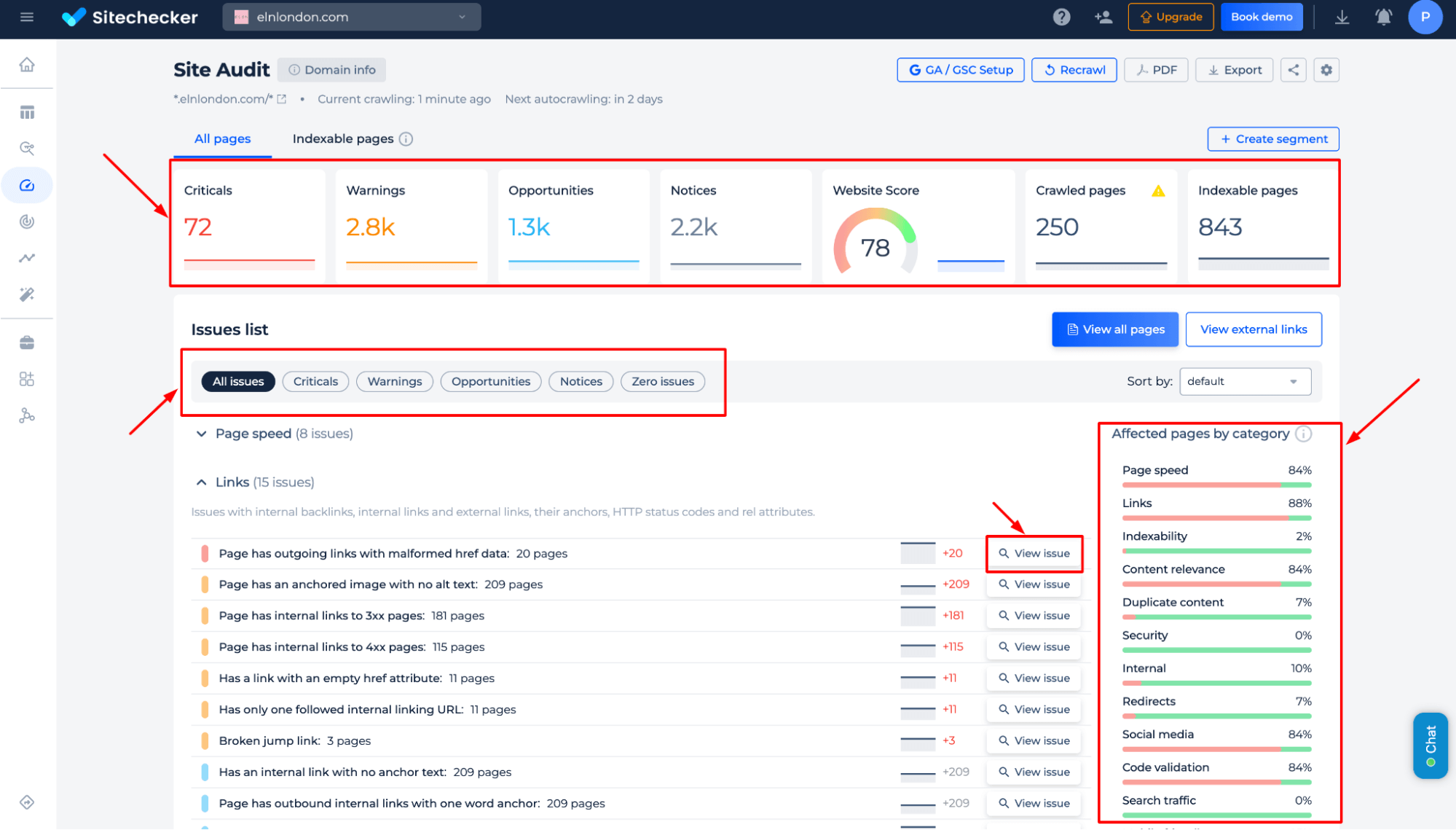
Webpage Size Checker
Step 1: Insert the URL address of the page and click “Start audit”
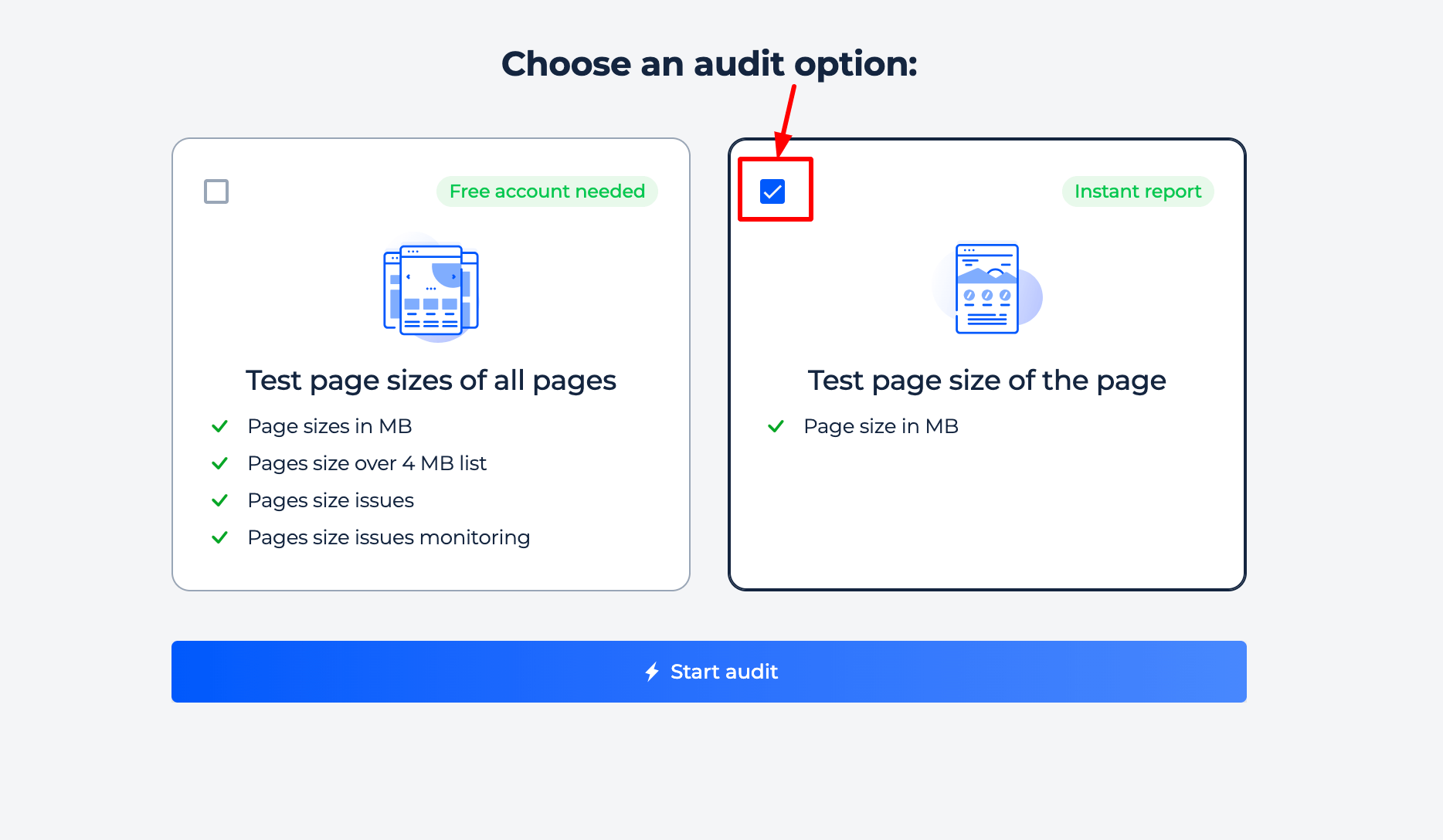
Step 2: Get the results
Get instant insights into your URL weight, including total weight in MB, status code, indexability, and performance impact. Identify oversized ones that may affect loading speed and SEO, ensuring optimal website efficiency.
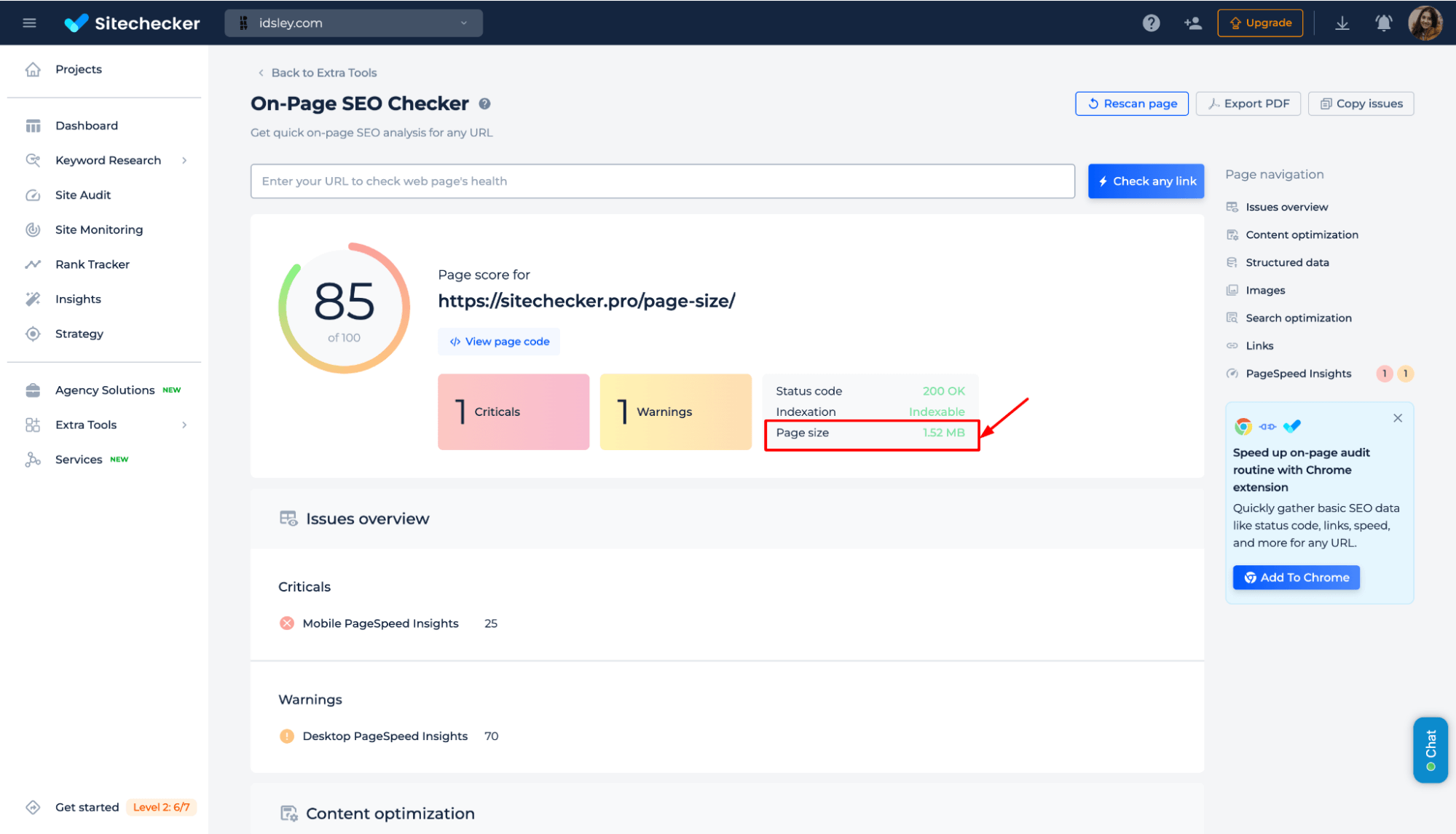
Unlock the full potential of the tool in the Site Audit section. Try the demo to see how it detects critical SEO issues, enhances website performance, and streamlines technical optimization.
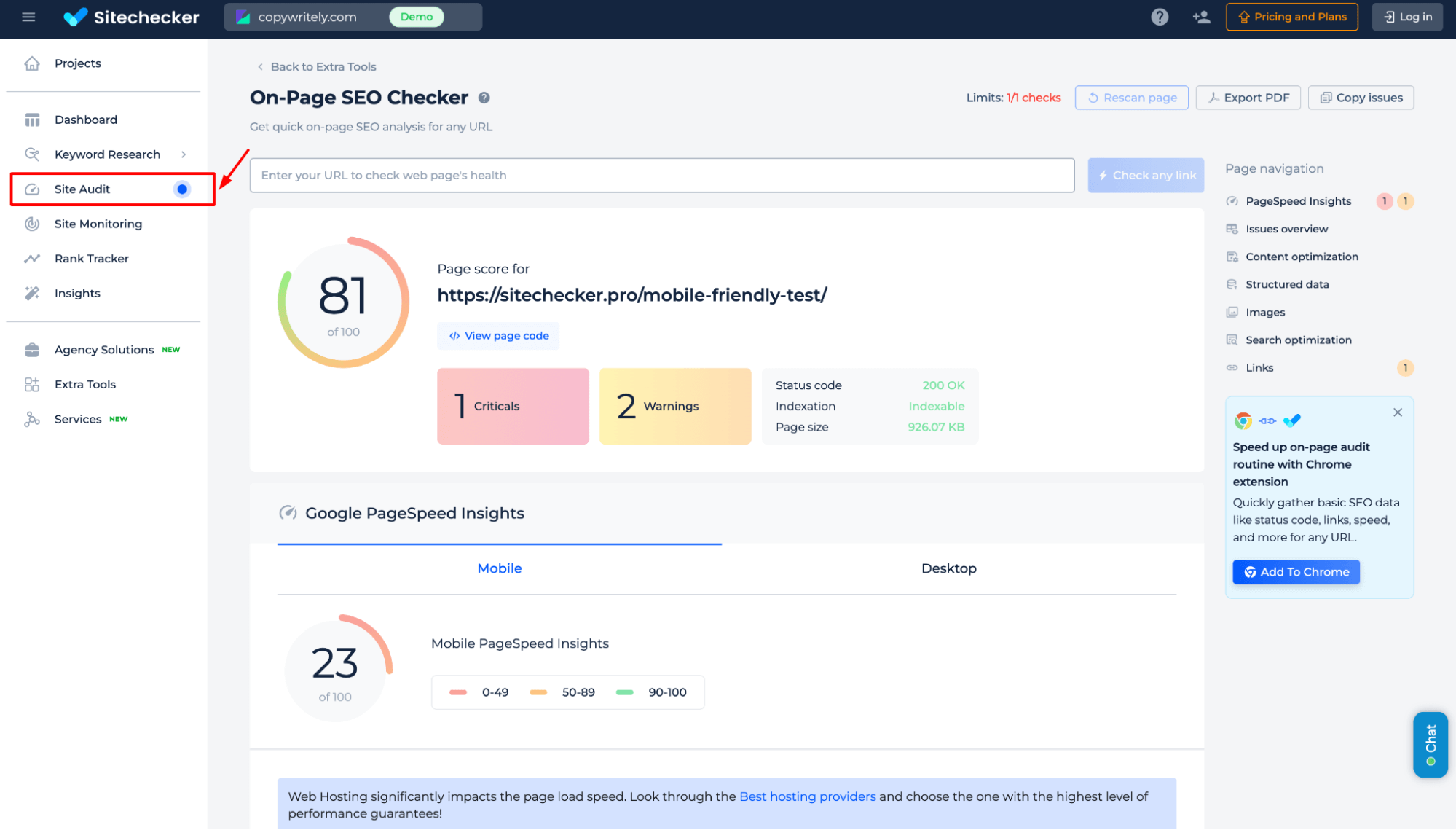
Additional features of the page size check
Get a complete webpage analysis, including speed insights, SEO warnings, content optimization, and indexing status. Identify slow load times, broken links, and indexing issues. The Navigation panel streamlines SEO fixes, improves speed, optimizes content, and enhances images with actionable recommendations.
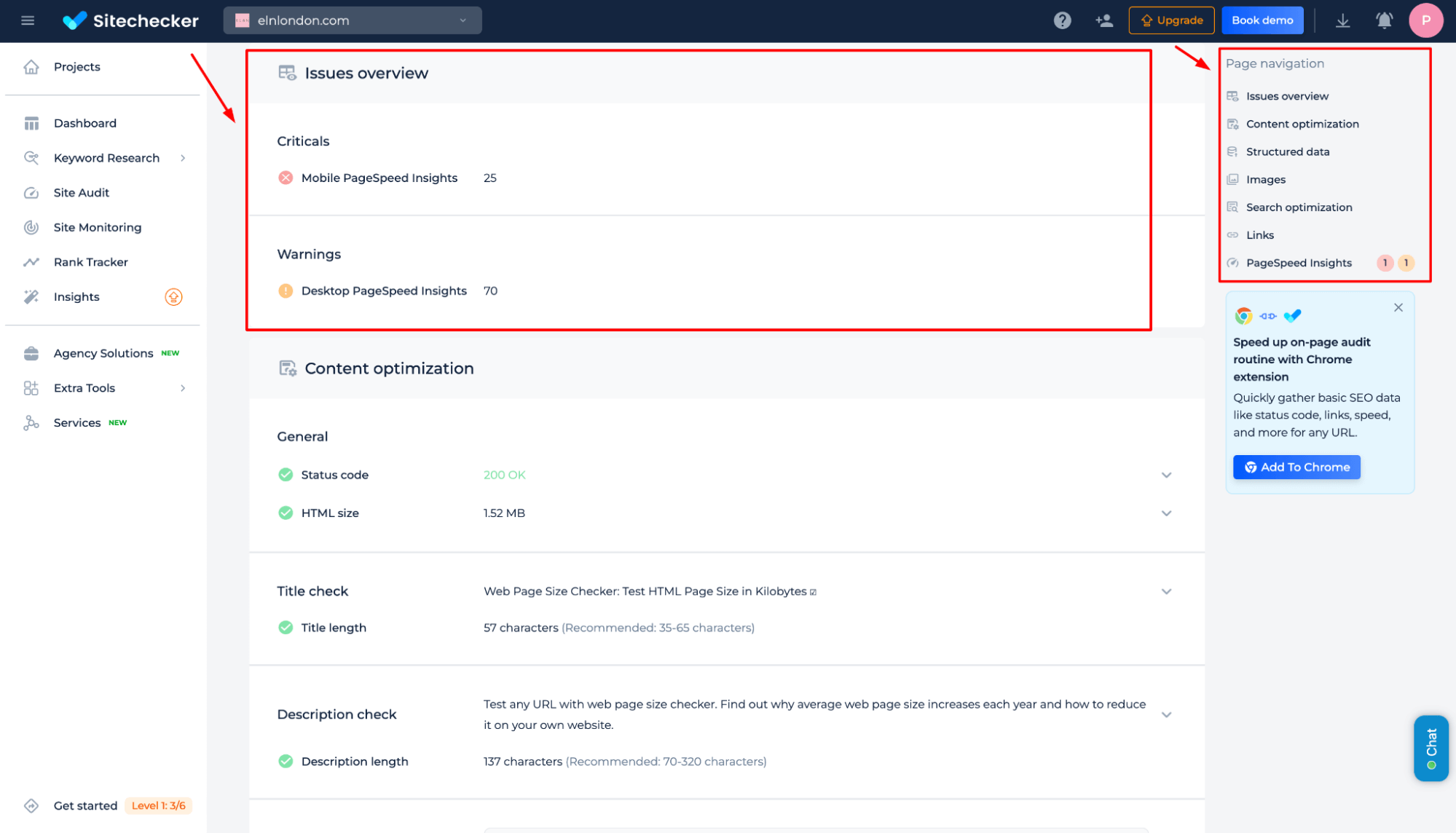
Check page size instantly in your browser
The Sitechecker Chrome Extension lets you see a page’s total size without running a full audit.
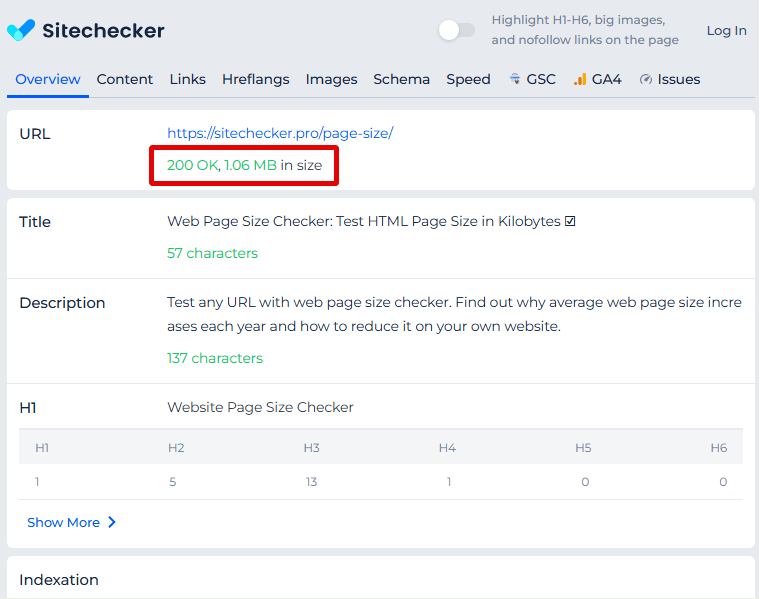
Open the extension while on any page and it shows the page weight — giving you a quick indicator of how heavy the page is, which helps spot performance issues early.
This makes it simple to check page size on the fly as you browse, without switching to another tool.
Final Idea
The Website size checker online helps analyze web page sizes to optimize performance and SEO. It offers quick checks for individual URLs and full site audits to identify oversized pages and related issues. The tool tracks weight variations, ensures optimal indexing, and provides actionable recommendations for improvement. With a unified dashboard, user-friendly interface, and complete SEO toolset, it simplifies website analysis. Additional features include critical SEO insights, speed performance evaluation, and indexing status monitoring.






